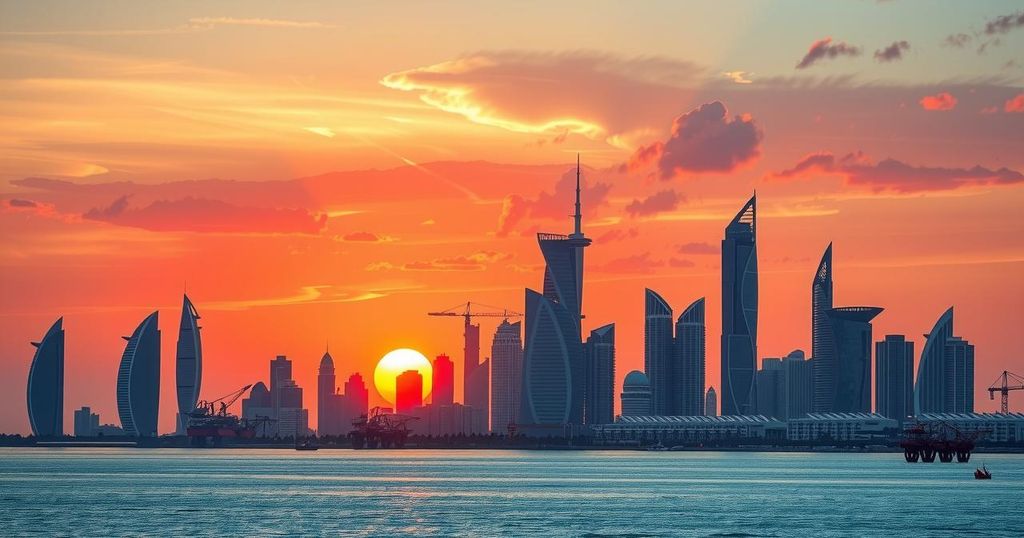Qatar, a small but wealthy nation, exerts substantial influence globally through its oil and gas production. It sponsors terror organizations like Hamas and invests heavily in foreign academia to shape perceptions. Recent controversies involving Israeli officials and U.S. arms deals raise concerns over Qatar’s commitment to peace versus its fuel of terror.
Qatar, despite its small population of three million, holds significant geopolitical influence as the world’s largest per capita producer of oil and natural gas, granting it one of the highest income economies globally. Its financial resources provide greater reach and impact in the Middle East compared to larger nations, facilitating strategic partnerships and interactions internationally.
The nation strategically utilizes its wealth to sponsor Islamic terror organizations such as Hamas, harboring many senior officials of the group. Furthermore, Qatar owns Al Jazeera, a prominent news network that plays a critical role in shaping public opinion in the region, thereby extending its influence through media.
Over the course of decades, Qatar has invested upwards of $11 billion in American universities, supporting legitimate academic initiatives alongside those with ulterior motives, including the promotion of antisemitism and anti-Zionist sentiments, which contribute to disruptions on college campuses.
Qatar’s influence extends into Israeli politics, with accusations of a junior spokesperson for Prime Minister Benjamin Netanyahu receiving payment from Qatar for public relations services. Additionally, consultants associated with Netanyahu have purportedly been on Qatar’s payroll simultaneously, underscoring Qatar’s deep infiltration into the Israeli political sphere.
The case of Eli Feldstein, Netanyahu’s military affairs spokesman, exemplifies Qatar’s reach, as he faced arrest for leaking classified information while allegedly being compensated by Qatar to enhance its image in Israel amidst negotiations with Hamas. This situation raises serious concerns regarding loyalty and national security.
Qatar has a notorious history of influencing American political figures, with former U.S. Sen. Robert Menendez convicted of accepting bribes from Qatar. Various influential individuals in U.S. politics, including lobbyists for Qatar, have participated in transactions that could undermine national interests.
Recently, the U.S. State Department’s potential sale of eight unmanned drones to Qatar for nearly $2 billion raises eyebrows. This transaction is troubling, as it involves arming a state known for supporting terrorism and instability, contradicting the supposed objective of fostering peace in the region.
While proponents may argue that Qatar is crucial for mediating between Israel and Hamas, it is imperative to recognize the hypocrisy in its dual role—ostensibly promoting peace while simultaneously supporting terror, raising questions about trust and the moral implications of military support to Doha.
In conclusion, despite its small size, Qatar wields significant influence due to its vast wealth derived from oil and gas production. It uses this wealth to foster relationships that support its geopolitical interests, including financial ties to terror organizations and strategic investments in foreign academia. Recent actions, including the potential sale of military drones from the U.S. to Qatar, pose critical ethical dilemmas against the backdrop of rising regional instability and highlight the complexities inherent in Qatar’s dual role in both mediating conflicts and exacerbating them.
Original Source: www.washingtonjewishweek.com






